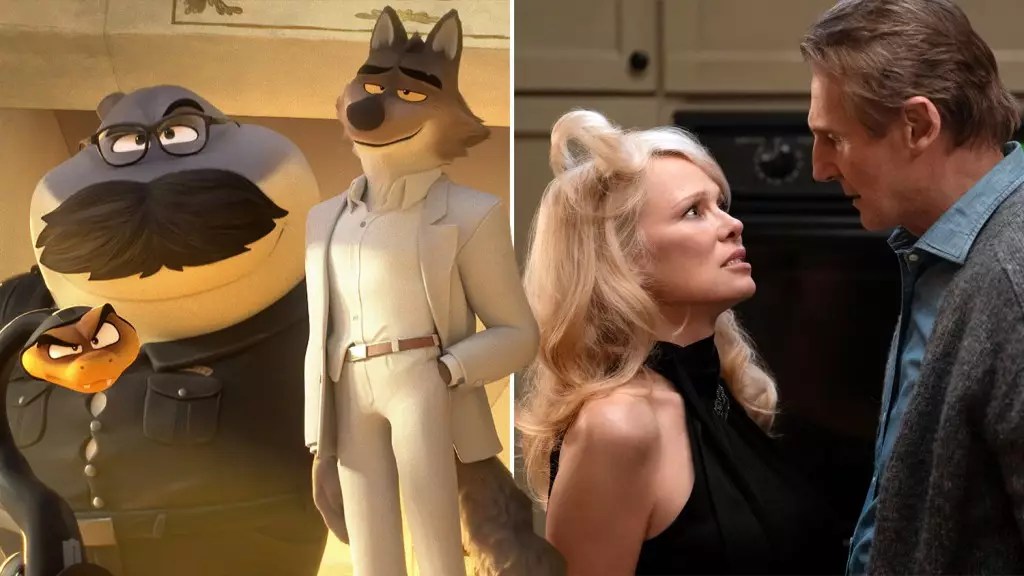The summer box office, often heralded as a barometer of Hollywood’s vitality, is revealing cracks that threaten the industry’s long-term stability. Recent releases such as “The Bad Guys 2” and “The Naked Gun” remake seem to suggest a fleeting resurgence, but a closer look exposes fundamental flaws in this narrative. With a combined production budget eclipsing $122 million and tepid returns, these films demonstrate Hollywood’s overreliance on franchise fatigue and nostalgic reboots. The industry has convinced itself that streaming backlash and Covid-induced disruptions are temporary setbacks, but the truth is more dire: consumer confidence in high-cost spectacles is waning, and audiences are increasingly skeptical of recycled content.
The initial box office numbers for “The Bad Guys 2,” although above last year’s debut, still fall short of expectations, primarily because moviegoers are questioning the value proposition. It’s telling that even with better opening numbers, tracking for the sequel projects a modest $20 million. The underlying problem is the industry’s inability to innovate culturally or artistically, instead clinging to franchises that no longer captivate or excite. The rising production costs—up $10 million from the original—highlight Hollywood’s misplaced faith in blockbuster overreach, which may well lead to financial disaster given the lukewarm reception from critics and audiences alike.
The Cracks in Comedy and Genre Reinventions
While Hollywood continues to chase hits with familiar brands, the attempts often land with mixed results. The 1980s reboot of “The Naked Gun,” backed by Paramount amidst merger chaos, embodies this desperation. Despite modest early returns and near-universal praise from critics (90% certified fresh), it remains clear that comedy cannot be forced through remakes or reboots. Audiences are smarter—they seek originality and authenticity, qualities increasingly absent in corporate-controlled productions. The film’s reception—an 87% audience score—mirrors the wider disconnect between Hollywood’s programming and genuine viewer interests.
The recent release of “Together,” a romantic horror from Neon, exemplifies another challenge: genre-blending films face a difficult path to commercial viability, especially when going up against high-profile blockbusters. Although “Together” has garnered excellent critic reviews and modest box office progress, it struggles to break into mass consciousness. The film’s underperformance underscores a broader trend: niche genre films, no matter how well-crafted, cannot alone sustain the industry’s economic future, which remains riddled with uncertainty and overproduction.
Are Hollywood’s Strategies Unsustainable?
Much of Hollywood’s current strategy hinges on the hope that nostalgia and brand recognition will carry weak scripts and dwindling creative originality. This approach is fundamentally flawed because it ignores the critical socio-economic shifts influencing consumer behavior. The audience landscape has diversified, with many viewers feeling alienated from the high-ticket prices, overhyped trailers, and predictable plots that dominate theaters.
Furthermore, the emphasis on massive budgets—like the $200 million price tag for “The Fantastic Four” reboot—reflects a reckless gamble. The declining second-weekend drops, hovering around 60%, signal that audiences are either losing interest or have simply shifted their loyalty elsewhere. As traditional film studios struggle to adapt, the rise of streaming platforms has exacerbated the crisis by offering instant access to diverse storytelling that Hollywood refuses to embrace, instead doubling down on stale franchises.
The industry’s continued failure to innovate culturally and economically will only deepen its crisis. Hollywood’s obsession with short-term returns on exhausted franchises strips away the artistry that once defined cinema’s golden age, replacing it with corporate greed and risk aversion. This is an alarming trend that echoes wider societal issues—where economic inequality and cultural stagnation threaten the very fabric of creative expression. The industry’s current trajectory suggests that unless there is a fundamental paradigm shift—toward genuine storytelling and audience engagement—Hollywood risks irrelevance altogether.


Leave a Reply